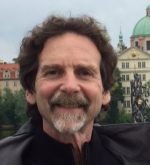The following is a point of view written by Kirk Schneider as part of a discussion on the big picture question of what is “optimal” human functioning, and what we therapists are “treating.” I (Serge) felt that it would be very relevant to this blog, and he gave me permission to post it here.
This is a multi-faceted, philosophical question that can’t satisfactorily be answered by neuroscience in my view, in part because there are many people whose brains would be considered neurophysiologically normal but who act in what many would view as the most morally and emotionally repugnant ways.
Conversely, there are a number of people whose brains appear to be neurophysiologically impaired but who perform both morally and intellectually at what many would consider optimal levels (consider, for example, Kay Jamison’s book “Touched by Fire” where she identifies legions of people who would be diagnosed as bipolar or clinically depressed today and yet were some of the most productive and sensitive people- artists, scientists, and thinkers- in history).
So yes, the questions of what we mean by “optimal” and just what it is that we are “treating” are fraught with cultural, political, and philosophical complexities. That’s why I believe that we will probably need to be content with pragmatic and evolving criteria for effective psychotherapy for a long time to come.
Perhaps the philosopher Richard Rorty (a la William James) gives us the “best” criteria we can use–which are how our frameworks play out in the marketplace of ideas; how persuasive they are; and how much they enrich our conversations and (multicultural) worlds.
And this is again why integrative, holistic approaches that are sensitive to persuasive, continually evolving, converging lines of evidence are so important to our field–and health.

Kirk J. Schneider, Ph.D., is the current president of the Existential-Humanistic Institute (EHI), past president (2015-2016) of the Society for Humanistic Psychology (Division 32) of the APA, and a candidate for President of the APA.